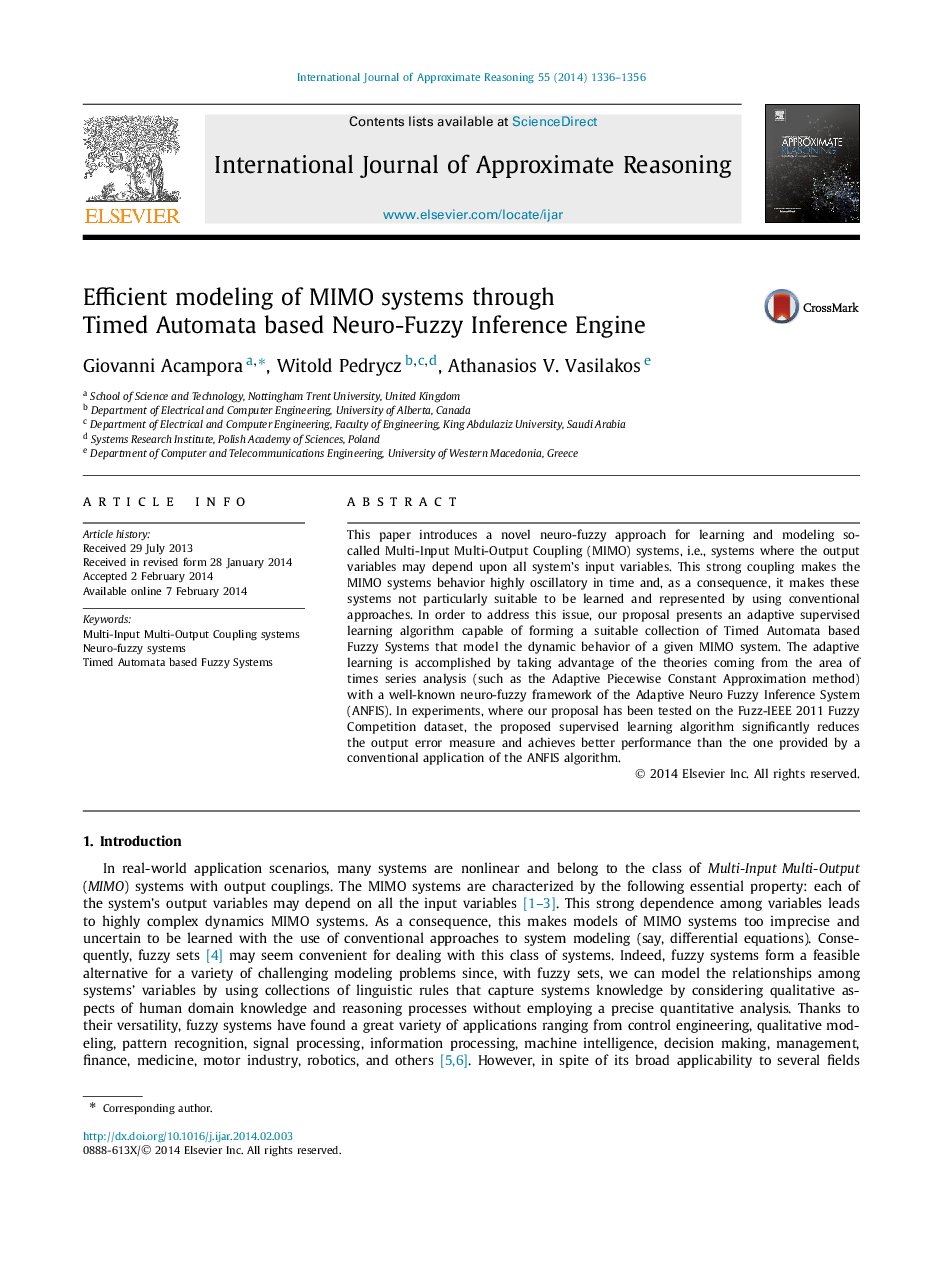| Article ID | Journal | Published Year | Pages | File Type |
|---|---|---|---|---|
| 398036 | International Journal of Approximate Reasoning | 2014 | 21 Pages |
•We introduce a new neuro-fuzzy inference engine for modeling MIMO systems.•The method integrates TSK fuzzy rule-based system, ANFIS and APCA.•The performance are better than a conventional application of the ANFIS algorithm.
This paper introduces a novel neuro-fuzzy approach for learning and modeling so-called Multi-Input Multi-Output Coupling (MIMO) systems, i.e., systems where the output variables may depend upon all system's input variables. This strong coupling makes the MIMO systems behavior highly oscillatory in time and, as a consequence, it makes these systems not particularly suitable to be learned and represented by using conventional approaches. In order to address this issue, our proposal presents an adaptive supervised learning algorithm capable of forming a suitable collection of Timed Automata based Fuzzy Systems that model the dynamic behavior of a given MIMO system. The adaptive learning is accomplished by taking advantage of the theories coming from the area of times series analysis (such as the Adaptive Piecewise Constant Approximation method) with a well-known neuro-fuzzy framework of the Adaptive Neuro Fuzzy Inference System (ANFIS). In experiments, where our proposal has been tested on the Fuzz-IEEE 2011 Fuzzy Competition dataset, the proposed supervised learning algorithm significantly reduces the output error measure and achieves better performance than the one provided by a conventional application of the ANFIS algorithm.
